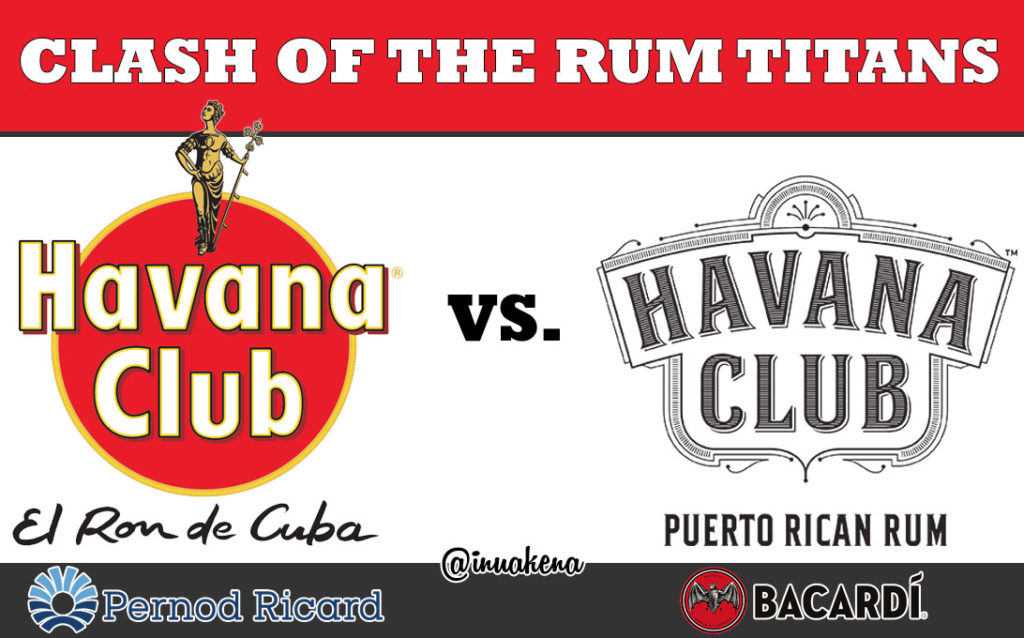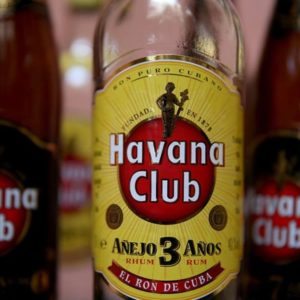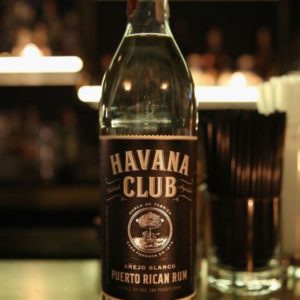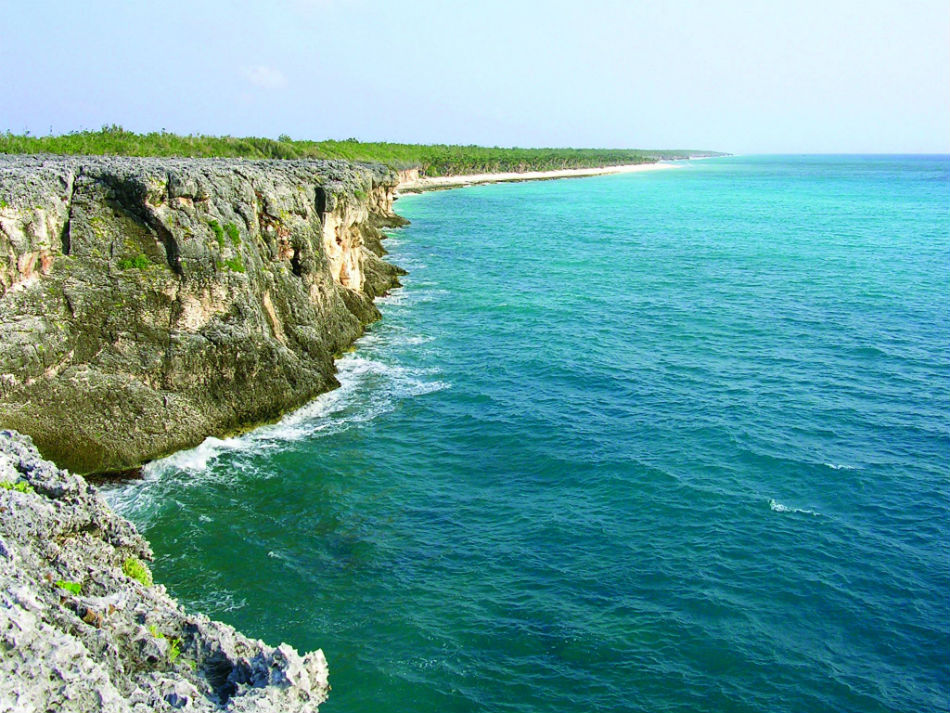Calle 8, in the heart of Miami’s Little Havana, is a symbol of Cubans in exile.
It is full of shops, restaurants, music and people who, saving the distances, bring to mind the colors and the flavor of the island.
In an art gallery Paola Arechabala receives us, who does not forget what happened to her family when Fidel Castro came to power in 1959 and nationalized the companies that operated in the country. One of them was the one that produced the Havana Club rum that at that time was owned by his father, José Arechabala.
“They stripped my family of everything I had, they mistreated my parents and threw them out of Cuba, they robbed them of the properties, the rum factory, they left them in the street,” she told BBC Mundo.
The Arechabala family sold the name Havana Club to Bacardí in 1994. It currently has no commercial link with the company.
“My father brought the original recipe to the United States, which is why the Havana Club sold here is the real one.”
https://youtu.be/iGn8CKnszXo
The Arechabalas came to the United States empty-handed. José started selling cars and did not feel the aroma of a distillery again.
In 1994 the family sold “the brand with the original recipe” to Bacardí and for more than two decades the multinational company has been producing Havana Club rum in Puerto Rico that is sold in the United States.
Bacardí distillery in Puerto Rico, where it produces Havana Club rum sold in the USA. (photo courtesy of Barcardí).
“The competition produces a rum with stolen property, we are the only ones who have the recipe and that is why we are the owners of the brand,” says Roberto Ramírez, director of rum marketing at Bacardi.
Original vs. Recipe place of origin
In the Cuban capital are the two distilleries where the other Havana Club is produced, which belongs in equal parts to the Cuban government and to Pernod Ricard since in 1993 they reached a commercial agreement to export the product to the whole world, except the United States, because the blockade did not allow them or allow them to sell it in that country.
The two multinationals that are facing this rum war have tried to legally secure the ownership of the brand on American soil.
There are pending resources and no new judicial resolution is expected in the near future, although in 2016 the US government guaranteed Cuba Export the exploitation rights of the brand, so if the embargo were lifted one day they could sell their rum on American soil.
In 1993, a commercial alliance was created between the Cuban government and Pernod Ricard to sell Havana Club. The main Havana Club markets that are manufactured on the island are Cuba, Germany and France.
“We are the owners.” From Paris, Ian FitzSimons, legal counsel for Pernod Ricard, tells BBC Mundo that the law has proved them right.
“We are the owners of the brand all over the world, and in the United States, we have been the registered owners of the brand since 1976. We have won litigation in all the countries where our property has been challenged,” he adds.
Havana Club rum sold outside the US It is produced in Cuba. The main argument of Cuba Export is that its rum is Cuban because it is made on the island.
“Havana Club is the authentic and genuine Cuban rum, it is the true spirit of Cuba because it is distilled in Cuba and is made 100% with Cuban ingredients,” says FitzSimons.
What is more important the origin or the recipe? That is a discussion that, at least in the United States, continues to generate debate.
And just as the embargo continues, so does the legal dispute over who is the real owner of the Havana Club name.
A commercial war whose origin is anchored in a political conflict of more than half a century that brought to the bar of a bar the echoes of the cold war.
HAVANA CLUB CONTRA HAVANA CLUB. EL ENCUENTRO DE DOS TITANES.
La Calle 8, en el corazón de la Pequeña Habana de Miami, es un símbolo de los cubanos en el exilio.
Está llena de tiendas, restaurantes, música y gente que, salvando las distancias, le traen a uno a la mente los colores y el sabor de la isla.
En una galería de arte nos recibe Paola Arechabala, quien no olvida lo que le pasó a su familia cuando Fidel Castro llegó al poder en 1959 y nacionalizó las empresas que operaban en el país. Una de ellas fue la que producía el ron Havana Club que en ese entonces era propiedad de su padre, José Arechabala.
“A mi familia la despojaron de todo lo que tenía. A mis padres los maltrataron y los botaron de Cuba. Les robaron las propiedades, la fábrica de ron, los dejaron en la calle”, le cuenta a BBC Mundo.
La familia Arechabala le vendió el nombre Havana Club a Bacardí en 1994. Actualmente no tiene ningún vínculo comercial con la empresa.
“Mi padre se trajo a Estados Unidos la receta original. Por eso el Havana Club que se vende aquí es el auténtico”.
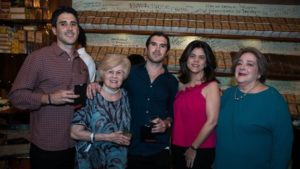
Familia Arrechabala. Desde que fueron obligados a salir de la isla, nunca volvieron a producir ron y actualmente no tienen ningún vínculo comercial con la empresa.
Los Arechabala llegaron a Estados Unidos con las manos vacías. José se puso a vender autos y no volvió a sentir el aroma de una destilería.
En 1994 la familia le vendió “la marca con la receta original” a Bacardí y desde hace más de dos décadas la multinacional produce en Puerto Rico el ron Havana Club que se vende en territorio estadounidense.
Destilería de Bacardí en Puerto Rico, donde produce el ron Havana Club que se vende en EE.UU. (foto gentileza de Barcardí).
“La competencia produce un ron con propiedad robada. Nosotros somos los únicos que tenemos la receta y por eso somos los dueños de la marca”, dice a BBC Mundo Roberto Ramírez, director de mercadeo de rones de Bacardí.
Receta original vs. lugar de origen
En la capital cubana están las dos destilerías donde se produce el otro Havana Club, que pertenece en partes iguales al gobierno cubano y a Pernod Ricard desde que en 1993 llegaron a un acuerdo comercial para exportar el producto a todo el mundo, excepto a Estados Unidos, porque el bloqueo no les permitía ni les permite venderlo en ese país.
Las dos multinacionales que se enfrentan en esta guerra del ron han intentado asegurar legalmente la propiedad de la marca en suelo estadounidense.
Quedan recursos pendientes y no se espera ningún tipo de resolución judicial nueva en un futuro próximo, aunque en 2016 el gobierno estadounidense garantizó a Cuba Export los derechos de explotación de la marca, por lo que si algún día se levantara el embargo podrían vender su ron en suelo estadounidense.
En 1993 se creó una alianza comercial entre el gobierno cubano y la empresa Pernod Ricard para vender Havana Club. Los principales mercados del Havana Club que se fabrica en la isla son Cuba, Alemania y Francia.
https://youtu.be/4i2Tg46qXEk
“Somos los dueños”. Desde París, Ian FitzSimons, consejero legal de Pernod Ricard, le dice a BBC Mundo que la ley les ha dado la razón.
“Nosotros somos los dueños de la marca en todo el mundo. En Estados Unidos, hemos sido los dueños registrados de la marca desde 1976. Hemos ganando los litigios en todos los países donde nuestra propiedad ha sido desafiada”, agrega.
El ron Havana Club que se vende fuera de EE.UU. es producido en Cuba. El argumento central de Cuba Export es que su ron es cubano porque se fabrica en la isla.
“Havana Club es el auténtico y genuino ron cubano. Es el verdadero espíritu de Cuba porque es destilado en Cuba y es elaborado 100% con ingredientes cubanos”, dice FitzSimons.
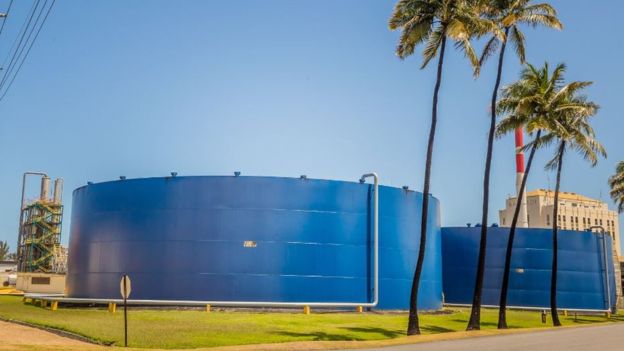
Destilería de Bacardí en Puerto Rico, donde produce el ron Havana Club que se vende en EE.UU. (foto gentileza de Barcardí).
¿Qué es más importante el origen o la receta? Esa es una discusión que al menos en territorio estadounidense, sigue generando debate.
Y así como el embargo continúa, también permanece la disputa legal sobre quién es el verdadero dueño del nombre Havana Club.
Una guerra comercial cuyo origen está anclado en un conflicto político de más de medio siglo que hizo llegar a la barra de un bar los ecos de la guerra fría.
Agencies/BBC/Internet Photos/Arnoldo Varona/TheCubanHistory.com
THE CUBAN HISTORY, HOLLYWOOD.



